Eight faculty members win 2020 Teaching Innovation Awards
April 17, 2020
Students at the UNC Gillings School of Global Public Health voted recently to select the School’s most innovative classroom teachers.
First presented in February 2012, the Teaching Excellence and Innovation Awards honor faculty members who students feel “improve the learning environment at the Gillings School by integrating new technologies, engaging students in interactive activities, employing creative assessment methods, and introducing and incorporating progressive curriculum ideas into the classroom.”
A $750 prize is intended to help the teachers’ educational development in teaching and learning.
The 2020 award winners are Yuchao Jiang, PhD, assistant professor of biostatistics and genetics; William Vizuete, PhD, associate professor of environmental sciences and engineering; Kimberly Powers, PhD, associate professor of epidemiology; Meg Landfried, MPH, assistant professor of health behavior and practicum director for the Master of Public Health program; Susan Helm-Murtagh, DrPH, assistant professor of health policy and management; Aunchalee Palmquist, PhD, assistant professor of maternal and child health; Stephanie Martin, PhD, assistant professor of nutrition; and Aimee McHale, JD, MSPH, assistant professor in the Public Health Leadership Program.
In their nominations, students shared high praise for the achievements and influence that these instructors had on their learning experiences.
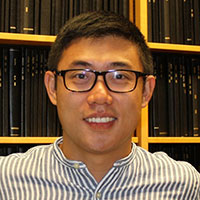
Yuchao Jiang, PhD
“Dr. Jiang started the BIOS 785 and BIOS 635 courses from scratch and prepared the course materials in great detail. He was a very effective and enthusiastic professor who did a great job teaching both courses. He respected every student, and you could tell that he wanted us to genuinely learn. I truly think that I learned a lot, and that was, in part, due to his efforts as a professor. He also encouraged us to participate in the Kaggle competitions on topics that are related to public health. I certainly gained tremendously from this, and I am sure this will help me in my future career.”
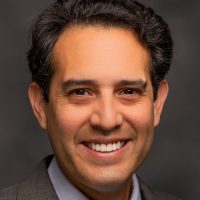
Dr. William Vizuete
William Vizuete, PhD
“Will has had an enormous impact on my academic career and future career decisions. In his ENVR 989 course, he introduced me to new resources and tools in understanding the impact of disasters on environmental health. He really changed my view on how we approach addressing disasters and emergent issues. Outside of the lecture environment, Dr. Vizuete provided me endless feedback and encouragement in seeking out career opportunities. He has expanded my network in a way I cannot even describe. Dr. Vizuete has been a vital member in my development as a researcher and public health worker.”
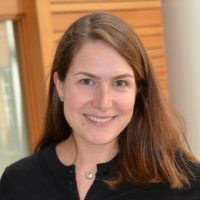
Dr. Kimberly Powers
Kimberly Powers, PhD
“I first got to know Kim by taking her pilot course on advanced methods in infectious disease epidemiology in 2016. Despite covering an array of complicated topics and methods, she presented lectures in a very clear, engaging manner, infused with her own passion for the material. When I took this course in 2016, it was the only opportunity for advanced training in infectious disease epidemiology in our department, covering methods that were not covered in other parts of the curriculum yet are essential for infectious disease researchers. Since this initial offering, Kim has worked tirelessly to revitalize the infectious disease epidemiology curriculum and better incorporate the newer and more advanced methods from her pilot course. Thanks to her efforts, what was once a pilot course is now the cornerstone of our curriculum. Her commitment to teaching innovation has resulted in the highest possible quality of education for infectious disease epidemiology students.”

Meg Landfried
Meg Landfried, MPH
“Meg has not only been a phenomenal mentor on an individual level, but she has been proactive in enhancing all students’ experiences through structured changes at Gillings. Her commitment to and development of SPHG 701 seems to have truly come out of response from both students and practicum preceptors. The course has supported reflection and the raising of critical consciousness in a way that I’ve been waiting for all year. Particularly in the health behavior department, Meg has also been very involved in steering the capstone experience.”
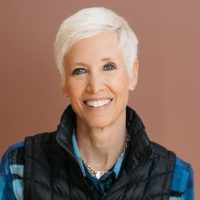
Dr. Susan Helm-Murtagh
Susan Helm-Murtagh, DrPH
“Virtual learning for the Executive Master’s Program in health policy and management can be rather challenging. However, Susan has found ways to not only engage her students but has included innovative ways of helping us learn by way of surveys, videos, class assignments, group work and even reading requirements. Susan doesn’t just stick to a textbook; she brings in real-life scenarios, experiences and historical events to not only teach us but force us to apply them to our day-to-day.”
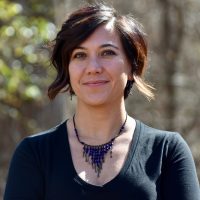
Dr. Aunchalee Palmquist
Aunchalee Palmquist, PhD
“Dr. Palmquist’s class on maternal and child health in humanitarian settings gave students the opportunity to develop their own research interests and create curricula around those interests to share with students. We had numerous opportunities to develop leadership and public speaking skills. Also, Dr. Palmquist’s teaching focuses on dismantling systems of oppression, which is a crucial ethical concern for public health students.”
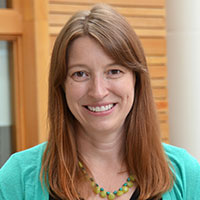
Dr. Stephanie Martin
Stephanie Martin, PhD
“Dr. Martin, although new to the Department of Nutrition, has been very supportive of students who have shown interest in obtaining experience working in international settings. She has used her connections abroad to help students obtain extremely satisfying experiences in their capstone projects and summer experiences. She also continues to provide career choice guidance for many undergraduate and graduate students and has been very supportive of students who have approached her with challenges related to their mental health. Personally, she constantly challenges me to think innovatively. She is so inspiring and such a great person to learn from.”
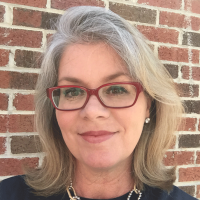
Aimee McHale
Aimee McHale, JD, MSPH
“Aimee’s course, PUBH 748, was interesting, engaging and important. I also had the opportunity to meet her at MPH@UNC Immersions and was impressed with the fact that she made it a priority to be there the majority of the time and was always open to having encouraging conversations.”
Contact the Gillings School of Global Public Health communications team at sphcomm@unc.edu.
